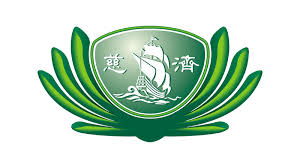BTCF’s commitments are made and effectuated globally in multiple countries, spanning the sectors of health and medicine, education, food security, WASH, and livelihood. From the period of 2019 to 2020, and since BTCF’s commitments were made in 2016, the organization has continued its programs that support women and girls’ access to the health and social services, including the implementation of food assistance and livelihood programs designed with the intent to empower women and girls, as well as the operation and scaling-up of BTCF’s clinics and schools that provide health services and primary, secondary, and tertiary education for young women and girls.
In Thailand and Malaysia, for example, BTCF, through the support of state and non-state actors, including the private sector, has scaled-up its clinical and health services that provide free healthcare to women and girls who are refugees. In Malaysia, as well as in Turkey, BTCF integrates its health and educational services; in one example, mental health providers provide psychosocial services, either in a group or individual setting depending on the mental health professional, for female refugee students who attend BTCF’s schools. This scale-up in BTCF’s programmatic services for women and girls is reflected in other countries in which BTCF has a presence.
One of the major factors that inhibited the successful scale-up of BTCF’s programs was the multisectoral and multilateral support, one that, during implementation in the field, manifested as transparent working groups and networks in which state and non-state actors—international organizations, NGOs, local businesses, local community-based organizations, faith-based organizations and religious institutions, local private schools and health providers—collaborated to serve vulnerable indigent populations and communities. In Thailand, for example, BTCF is part of BASRAN, in which NGOs, local CBOs, UNHCR, and the state government are involved in, all working together to identify and provide services to refugees as effectively and efficiency as possible while minimizing risk and protection issues.
The strongest indicator for the achievements of BTCF’s programs that serve women and girls is the intentional inclusion of female voices and representation in the programs. Using Thailand, Malaysia, and Turkey examples, the programs implemented have female leadership and program implementors, meaning that the internal staffing has ostensibly affected the ways in which the programs are operated. Another key lesson specific to this indicator is that it is not enough to simply employ women in leadership roles but to include women and girls from the served population to become leaders, and, in some contexts, program implementors as well.







